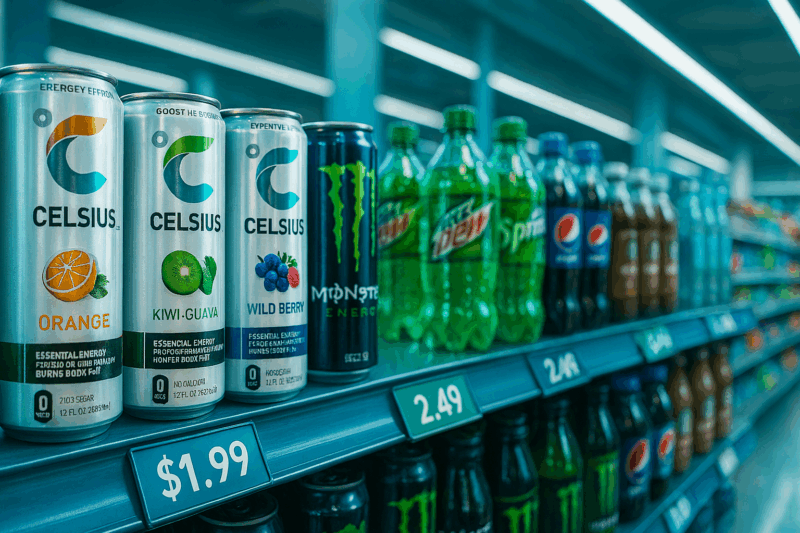In today’s fast-paced world, many rely on a quick jolt of caffeine to power through demanding workdays, intense workouts, or sluggish afternoons. Energy drinks have long been a go-to for this purpose, but their premium pricing often made them less appealing compared to other caffeinated beverages like coffee, tea, or soda. However, a recent shift in the beverage market is making energy drinks a surprising value proposition for consumers seeking both a caffeine kick and affordability.
According to industry insights, beverage companies have significantly increased prices for tea, soda, and coffee in recent years to offset rising production costs. In contrast, energy drink prices have risen at a slower pace. This is largely because energy drinks, historically positioned as premium products due to their high caffeine content and specialized branding, had less room for drastic price hikes. As a result, the price gap between energy drinks and other caffeinated beverages has narrowed, making brands like Celsius more competitive in the market.
A standout example is Celsius, a popular energy drink brand that reported a remarkable 29% growth in retail sales for the quarter ending June 30. This surge reflects not only the brand’s effective marketing but also the broader trend of consumers gravitating toward energy drinks as a cost-effective alternative. Unlike traditional sodas or pricey coffee shop beverages, energy drinks are increasingly seen as delivering more bang for the buck—offering high caffeine levels and functional benefits like enhanced focus or workout performance without breaking the bank.
This shift comes at a time when consumers are more budget-conscious due to economic pressures. With coffee prices climbing—sometimes exceeding $5 for a single latte at popular chains—energy drinks are emerging as a practical choice for those needing a reliable energy boost. For instance, a can of Celsius often costs less than a specialty coffee, yet it delivers comparable or higher caffeine content, appealing to workers, athletes, and students alike.
However, the value of energy drinks isn’t just about price. Many brands are reformulating to include additional ingredients like vitamins, amino acids, or herbal extracts, positioning themselves as wellness-oriented products. This trend aligns with growing consumer interest in functional beverages that promise more than just caffeine. Still, health experts caution that energy drinks can contain 100-300 milligrams of caffeine per serving, close to or exceeding the FDA’s recommended daily limit of 400 milligrams for adults, so moderation is key.
As the beverage industry evolves, energy drinks are shedding their image as a niche, high-cost product. With brands like Celsius leading the charge, they’re becoming a smart choice for those seeking an affordable, effective caffeine boost. Whether you’re powering through a long shift or hitting the gym, energy drinks might just be the budget-friendly pick-me-up you didn’t expect.






